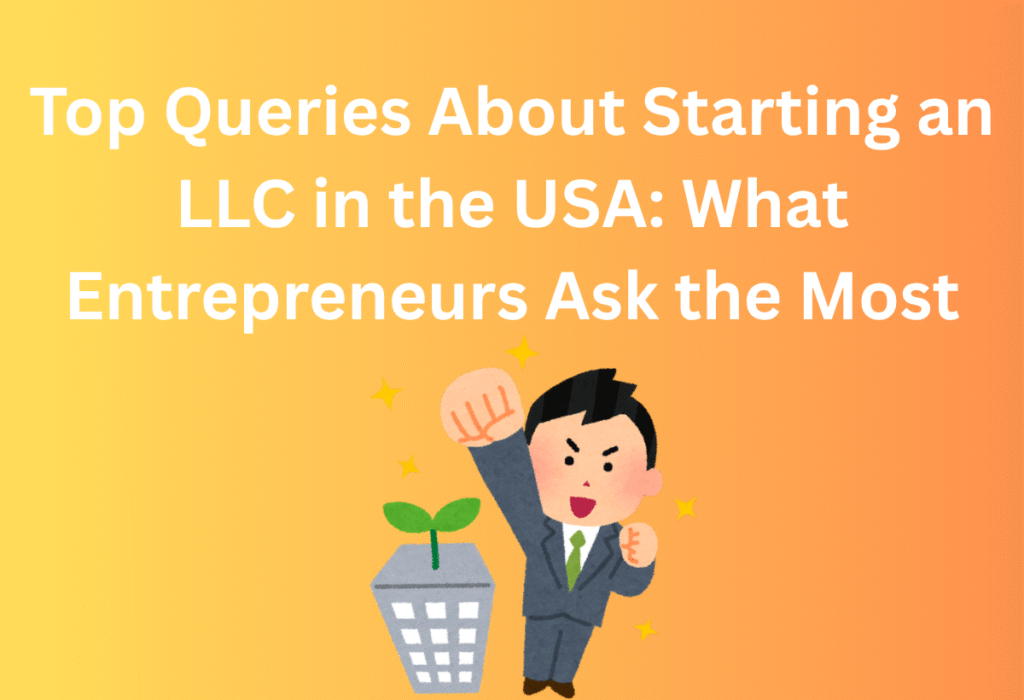If you’re thinking about forming an LLC in the United States, you’re not alone—and you’re definitely not the only one with questions. Every day, new entrepreneurs, freelancers, and non-resident founders search for answers to the same recurring concerns. So, we’ve gathered the top queries people ask when starting an LLC—and we’re here to answer them clearly.

Let’s walk through the most popular questions and what they mean for your business.
1. How long does it take to form an LLC?
Most states process LLC filings within 1–2 weeks, but some offer expedited options (24–72 hours) for an additional fee. If you file online, the process is generally much faster than mailing in your documents.
⏱️ For example, Delaware and Florida offer same-day or next-day services if you pay for expedited filing.
2. Can a non-U.S. resident start an LLC in the U.S.?
Yes. Non-residents can form LLCs in the U.S. without being citizens or green card holders. You don’t even need a U.S. address in most cases—just a registered agent located in the state where you’re forming the LLC.
However, you’ll likely need an EIN (Employer Identification Number), and possibly an ITIN for tax purposes.
📌 See: IRS EIN Application
3. What state is best to form an LLC in?
It depends on your goals. If you’re operating mainly in one state, form your LLC there. But if you’re non-resident or online-only, popular choices include:
- Delaware – strong legal protection, great for startups
- Wyoming – low fees, privacy
- Florida – fast processing, friendly tax structure
4. How much does it cost to start an LLC?
Costs vary by state. Here’s a quick snapshot:
- Delaware: $90 filing fee
- Texas: $300
- California: $70 filing + $800 annual franchise tax
- Florida: $125
Plus, you may need to pay for a registered agent, operating agreement, EIN, and state renewals.
5. Do I need a business address in the U.S.?
Not necessarily. If you’re a non-resident, your registered agent will provide a U.S. address for legal correspondence. However, you may need a U.S. mailing address for opening bank accounts or working with U.S. clients.
6. Can I open a U.S. bank account with an LLC?
Yes, but it’s more complex if you’re a foreign founder. Many banks require you to visit a branch in person, provide your EIN, operating agreement, and sometimes an ITIN. Alternatively, some fintech companies and online banks offer remote onboarding.
7. Should I choose LLC or sole proprietorship?
An LLC offers limited liability protection, which means your personal assets are shielded from business debts. A sole proprietorship doesn’t offer that protection.
If you want to grow your business, open a bank account, or work with partners or investors, an LLC is often the better choice.
Final Thoughts
Starting an LLC in the U.S. doesn’t have to be intimidating. Most of your top questions have simple answers—if you know where to look. Understanding how timelines, costs, legal requirements, and tax classifications work will put you far ahead of the curve.
Still unsure? Let me know what questions you have—I’ll answer them or even create a custom guide or checklist just for your situation.
Your business deserves a strong foundation. Let’s build it right from the start.